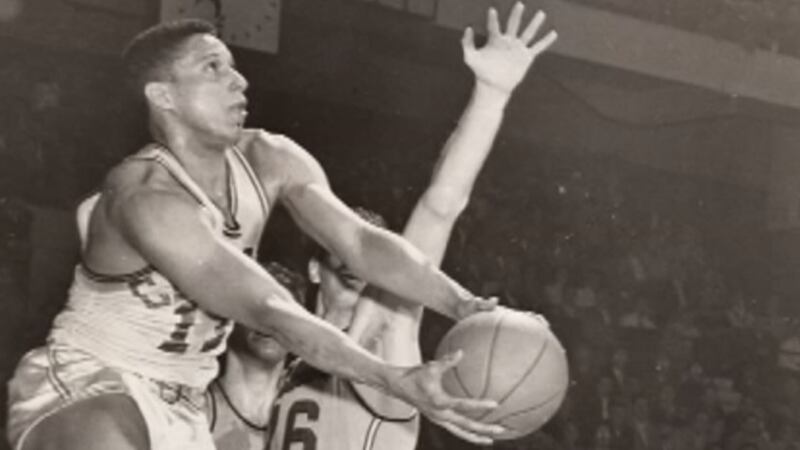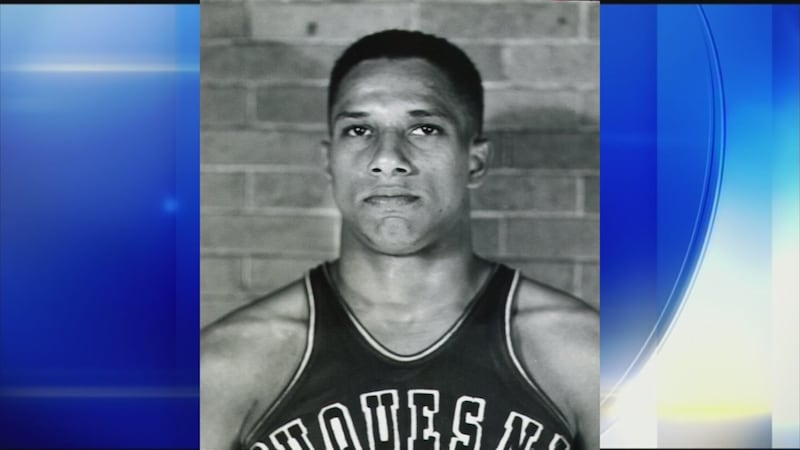PITTSBURGH — 72 years ago in April, Chuck Cooper became the first Black player ever selected in the NBA draft.
Cooper played for Duquesne University before going pro, and 11 News sat down with his son about the incredible legacy he leaves behind.
The emotions hit Chuck Cooper III every time he walks into the UPMC Cooper Fieldhouse. After all, its name honors his dad.
“To sit in his building and look around, see his name,” Chuck Cooper III said, “It’s really almost impossible to explain just how you feel, but I’m getting goosebumps thinking about it right now.”
“I really think he was aware that he was a barrier breaker, and again, not only did he want to make a difference and make it easier for those coming up behind him, but he also wanted to make sure that he didn’t do anything that would impede other people’s opportunity who are following him,” Cooper III said.
A bond unlike any other was forged between Cooper and Duquesne in 1946.
The University of Tennessee came to Pittsburgh for a highly-anticipated matchup against Duquesne.
It was set to be a sold-out crowd-- but there was no game.
An all-white Tennessee team refused to take the floor if Duquesne let Cooper play. The Dukes took a vote, and sent Tennessee home.
“I think the university made a statement,” Cooper III said. “I think it resonated throughout the country, that, everyone should have an opportunity to play and perform.”
Cooper, a captain for the Dukes, went on to have an all-American collegiate career before becoming the first Black player selected in the NBA draft in 1950.
“We always should celebrate barrier breakers and people who are the first,” Cooper III said. “As we celebrate them, I think it’s important to remember that to blaze the trail, to be a pioneer, comes with wounds and leaves scars.”
It was a trail Cooper blazed with an immense amount of courage during pre-Emmett Till America.
“I think about, as a teenager in your early 20s, and that happens, that people are still getting hung in this country,” Cooper III said. “And you’re by yourself, other than your teammates. How that must have felt. The thing that really amazes me, about any pioneers or all the pioneers, is how they were with all that going on. How were they able to perform at a professional level? I just wonder, mentally, how tough that was. So when you talk about courage, they really had to have a lot of courage to blaze that trail.”
Cooper, along with Earl Lloyd and Nat “Sweetwater” Clifton, were those courageous trailblazers, as they became the first Black players to play in the NBA in the 1950-51 season.
Fast-forward to the 2022 NBA All Star Game, when superstar Steph Curry walked up to the podium for his press conference donning the sweatshirt of the trio with the script “The Pioneers,” something that brought tears to Cooper III’s eyes.
“To have the younger players, today’s players, recognize the sacrifice, the dedication and the contribution of my father, Earl Lloyd, Nat Sweetwater Clifton, Donald Barksdale, Bill Russell, the great Murray Stokes, who’s one of Pittsburgh’s own, today is very special,” Cooper III said.
After his time in the NBA, which eventually led him to the Hall of Fame, came to an end, Cooper continued to break barriers.
“After his NBA career, he went and got his master’s degree,” Cooper III said. “He became the first African American city department director in Pittsburgh’s government’s history. Then he was PNC’s first African American community banking executive.”
That is something his son says is just so fitting as part of his dad’s legacy.
“He always told me that the basketball part of it, he always felt like he was on a mission,” Cooper III said. “To me, I think it is somewhat obvious that he must have been on a mission to continue. It had to be in him to make a difference.”
TRENDING NOW:
©2022 Cox Media Group








